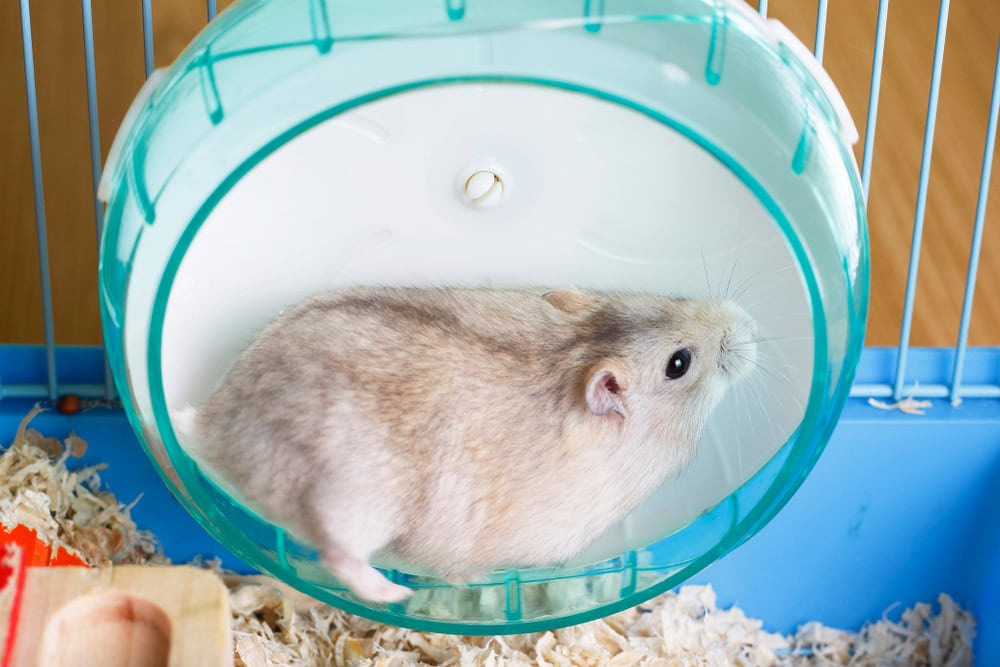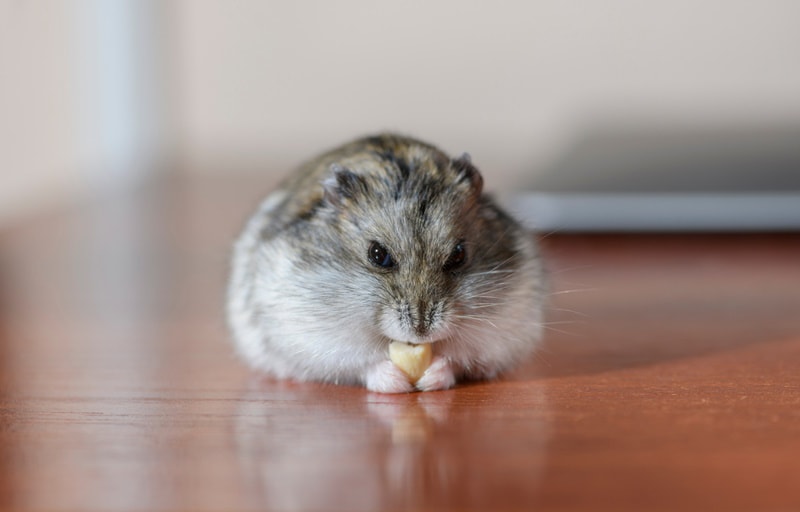How Long Are Hamsters Pregnant? Vet-Approved Gestation Guide
Updated on

Click to Skip Ahead
As a hamster lover, you may be attracted to the idea of breeding these adorable critters and welcoming tiny fur babies into your home. However, there are several important factors to consider before embarking on such an adventure. For one thing, hamsters, much like rats and mice, have a relatively short gestation period, typically ranging from 16 to 22 days, depending on the species. This also means you could end up with pups much sooner than you expected!
Keep reading to find out more about hamster gestation and to learn essential tips to ensure a healthy pregnancy for your cute four-legged friends.
How Many Babies Can Hamsters Have?
Hamster babies are called “pups.” A typical litter contains six to eight pups. At birth, the pups are hairless, and their eyes and ears are closed, but they have their front teeth, called incisors. The pups are weaned after 21 to 28 days.
Weaned hamsters need to be separated from their parents and siblings of the opposite sex to avoid inbreeding.
According to the Merck Veterinary Manual,1 you can start handling the pups slowly when they reach about 7 days old and offer them solid food moistened with water at about 10 days old.

At What Age Can Hamsters Become Pregnant?
Hamsters can start breeding as early as 10 weeks old. Although the mating process may seem “simple” at first—just placing a male in the same enclosure as a female in heat—aggression and fights can occur, even if the female seems receptive. This is why it is generally recommended that hamster breeding be entrusted to experienced breeders. In addition, you must ensure that the hamsters are not related, as inbreeding risks genetic disorders.
How Do You Know When Your Hamster Is About to Give Birth?
In the days leading up to birth, you may observe a slight increase in the female hamster’s belly size, restlessness, and even vaginal bleeding. Contact your veterinarian for advice if you have any concerns around what is normal and when you should seek veterinary help. You should also provide extra nesting material when she’s about to give birth to ensure her comfort and reduce the risk of abandonment or cannibalism.
After birth, avoid disturbing the mother and her pups for at least 7 days, especially if it’s her first litter. Minimize your interactions with them, only tending to their food and water needs as necessary.

What Are Common Challenges When Breeding Hamsters?
Although it is not necessarily easy to take care of baby hamsters, the reproduction stage also generates its share of challenges.
Common problems include female hamsters being infertile or having smaller litters than expected. This can be attributed to factors like stress, old age, inadequate nutrition, living in a cold environment, or even abnormal estrous cycles.
In some cases, pregnant females may exhibit behaviors like abandoning or even eating their babies, though the underlying causes of these behaviors are not widely documented. A few theories suggest that a poor or unbalanced diet could force the female to seek additional nutrients elsewhere. Furthermore, factors like overcrowding, excessive handling of the pups, or a noisy environment can increase the chances that the mother hamster will abandon or eat her young.
Tips for Ensuring a Healthy Hamster Pregnancy
- Provide additional bedding. Before your female hamster gets pregnant, make sure she has a clean, spacious cage with plenty of bedding material. Hamsters like to create nests for their offspring, so provide yours with safe nesting materials like aspen bedding, hay, cardboard or paper towel. Ideally provide a combination as some hamsters may have bedding material preferences.
- Make sure the mother gets good nutrition and plenty of water throughout her pregnancy. It’s also a good idea to take your female hamster to the vet for a checkup before she becomes pregnant.
- Minimize stress and handling. Keep the environment calm and free of disturbances. Avoid excessively handling your pregnant hamster, as this will stress her out.
- Separate from other hamsters. If you keep multiple hamsters, separate them as soon as you suspect that your female is pregnant to avoid the risk of fighting and injury.
- Don’t disturb a new mother and her pups until a week after birth. Be sure to take the babies to the vet for a checkup when they’re around 1 month of age.

Wrapping Up
Although hamsters have a rather short gestation period of between 16 and 22 days, this does not mean that their pregnancy is necessarily easy and without risk. In fact, raising and breeding hamsters presents many challenges and potential problems. So, before embarking on such an endeavor, ask yourself whether you are ready for such a commitment, and do not hesitate to seek advice from your vet if you have any remaining concerns.
Featured Image Credit: TanyaKim, Shutterstock












